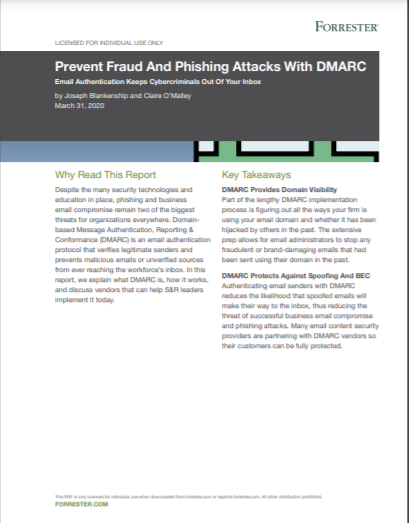Google warns of data-stealing macOS bug
Hackers exploited the flaw to target a Hong Kong media outlet's website and pro-democracy labor and political group


Google has revealed more details relating to a macOS bug that it saw used in the wild against visitors to Hong Kong media websites.
The search giant's Threat Analysis Group (TAG) identified a watering hole attack against a media outlet's website and pro-democracy labor and political group, said Google TAG researcher Eyre Hernandez in a blog post detailing the exploit.
The watering hole attack, in which the exploit infected visitors to the website, targeted iOS and macOS devices, the company said. These used two different attack frameworks.
The macOS attack used vulnerability CVE-2021-30869, which was unpatched at the time and installed a previously unreported backdoor on Mac systems. It targeted Intel-based Macs running the Catalina version of its operating system, but Apple's latest Big Sur version features generic protections, rendering the exploit useless.
The code was sophisticated, using obfuscation techniques that forced the TAG researchers to write a script that decoded it.
The attack broke out of Safari's sandbox security mechanism and ran as root, giving it full system access. It then downloaded a payload, which Hernandez called "a product of extensive software engineering," using a publish-and-subscribe service to download different attack modules.
RELATED RESOURCE

Prevent fraud and phishing attacks with DMARC
How to use domain-based message authentication, reporting, and conformance for email security
The module TAG team saw captured user keystrokes. Other features included fingerprinting the device, capturing screenshots, and recording audio from the Mac. It also executed commands in the terminal and downloaded or uploaded files from the victim's machine.
Sign up today and you will receive a free copy of our Future Focus 2025 report - the leading guidance on AI, cybersecurity and other IT challenges as per 700+ senior executives
"Based on our findings, we believe this threat actor to be a well-resourced group, likely state-backed, with access to their own software engineering team based on the quality of the payload code," Hernandez said.
TAG reported the vulnerability to Apple, which patched it in Catalina on September 23. However, TAG believes the exploit triggered over 200 infections when it found the attack.
Big tech companies have stopped processing data requests on users from Hong Kong following fears over human rights abuses and spying from China. Facebook also cancelled an undersea cable there in March.
Danny Bradbury has been a print journalist specialising in technology since 1989 and a freelance writer since 1994. He has written for national publications on both sides of the Atlantic and has won awards for his investigative cybersecurity journalism work and his arts and culture writing.
Danny writes about many different technology issues for audiences ranging from consumers through to software developers and CIOs. He also ghostwrites articles for many C-suite business executives in the technology sector and has worked as a presenter for multiple webinars and podcasts.
-
 The NCSC touts honeypots and ‘cyber deception’ tactics as the key to combating hackers
The NCSC touts honeypots and ‘cyber deception’ tactics as the key to combating hackersNews Trials to test the real-world effectiveness of cyber deception solutions have produced positive results so far
-
 Can data center supply keep up with AI demand?
Can data center supply keep up with AI demand?News New research from Goldman Sachs points to a precarious balancing act for data center operators
-
 Security experts claim the CVE Program isn’t up to scratch anymore — inaccurate scores and lengthy delays mean the system needs updated
Security experts claim the CVE Program isn’t up to scratch anymore — inaccurate scores and lengthy delays mean the system needs updatedNews CVE data is vital in combating emerging threats, yet inaccurate ratings and lengthy wait times are placing enterprises at risk
-
 IBM AIX users urged to patch immediately as researchers sound alarm on critical flaws
IBM AIX users urged to patch immediately as researchers sound alarm on critical flawsNews Network administrators should patch the four IBM AIX flaws as soon as possible
-
 Critical Dell Storage Manager flaws could let hackers access sensitive data – patch now
Critical Dell Storage Manager flaws could let hackers access sensitive data – patch nowNews A trio of flaws in Dell Storage Manager has prompted a customer alert
-
 Flaw in Lenovo’s customer service AI chatbot could let hackers run malicious code, breach networks
Flaw in Lenovo’s customer service AI chatbot could let hackers run malicious code, breach networksNews Hackers abusing the Lenovo flaw could inject malicious code with just a single prompt
-
 Industry welcomes the NCSC’s new Vulnerability Research Initiative – but does it go far enough?
Industry welcomes the NCSC’s new Vulnerability Research Initiative – but does it go far enough?News The cybersecurity agency will work with external researchers to uncover potential security holes in hardware and software
-
 Hackers are targeting Ivanti VPN users again – here’s what you need to know
Hackers are targeting Ivanti VPN users again – here’s what you need to knowNews Ivanti has re-patched a security flaw in its Connect Secure VPN appliances that's been exploited by a China-linked espionage group since at least the middle of March.
-
 Broadcom issues urgent alert over three VMware zero-days
Broadcom issues urgent alert over three VMware zero-daysNews The firm says it has information to suggest all three are being exploited in the wild
-
 Nakivo backup flaw still present on some systems months after firms’ ‘silent patch’, researchers claim
Nakivo backup flaw still present on some systems months after firms’ ‘silent patch’, researchers claimNews Over 200 vulnerable Nakivo backup instances have been identified months after the firm silently patched a security flaw.
